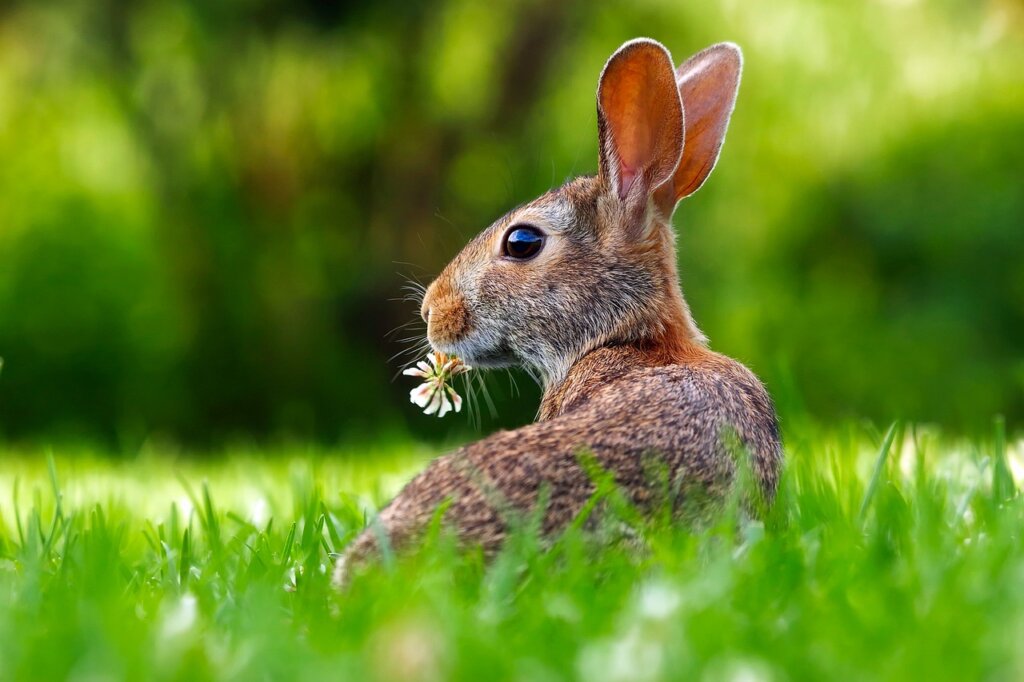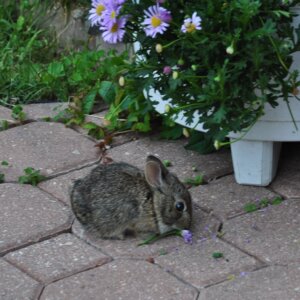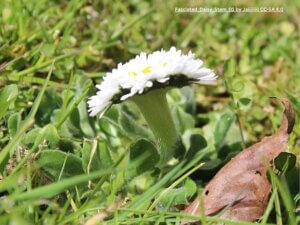Critters in the Garden: Rabbits
Little bunnies abound in the early days of spring and summer. Who can resist their soft furriness – you just want to hug the little critters because they are so cute.
Then they multiply and somehow they aren’t so cute anymore, especially if you’ve been waiting all year for that crop of tulips to bloom. And they can be downright annoying when they prune back shrubs, such as spirea, cistena cherry or ornamental plum. They seem to love the tender bark of these plants to supplement their winter diet.
1. Wait it out
The thing is, though, in the city rabbits are generally only a problem in the early spring. They stop by for a green meal once the snow recedes but seem to prefer the sweet clover that will populate your lawn if you’ll only let it.
2. Plant daffodils with your vegetables
Vegetable gardens may be a bit more at risk because rabbits do enjoy cabbage and other tender-leafed plants. They might nibble carrot tops, but they won’t dig them up. Try planting daffodils in the flowerbeds. Daffodils are poisonous to rabbits and they will often stay out of the beds that contain these cheery flowers.
3. Physical barriers
To keep rabbits away from tender-barked shrubs in winter, protect the shrubs with a wire fence in the fall.
4. Sprays
There are the usual sprays and paints containing ammonium soaps, capsaicin(hot pepper), naphthalene (moth balls),and blood meal, but they have to be reapplied after rain.
5. Rabbit-resistant plants
Rabbit-resistant plants are those that rabbits are less likely to eat. In Canada, you can consider planting the following rabbit-resistant plants.
- Lavender (Lavandula): Known for its strong fragrance, which rabbits tend to avoid.
- Russian Sage (Perovskia atriplicifolia): With its aromatic leaves, this plant is not a favorite of rabbits.
- Yarrow (Achillea millefolium): The pungent scent and texture of yarrow make it less appealing to rabbits.
- Marigolds (Tagetes): These flowers have a strong odor that rabbits usually stay away from.
- Catmint (Nepeta): Similar to lavender, catmint has a scent that deters rabbits.
- Bee Balm (Monarda): The strong smell of bee balm can keep rabbits at bay.
- Daylilies (Hemerocallis): While some varieties might be nibbled on, many daylilies are generally avoided by rabbits.
- Foxglove (Digitalis): This plant is toxic to rabbits and most other animals, so they tend to avoid it.
- Lamb’s Ear (Stachys byzantina): The fuzzy texture of lamb’s ear is not appealing to rabbits.
- Alliums (Allium): These plants, including onions and garlic, are generally avoided due to their strong smell.
Remember, while these plants are less likely to be eaten by rabbits, no plant is completely rabbit-proof. Hungry rabbits might still nibble on them if food sources are scarce. Adding a physical barrier, like fencing, can provide additional protection for your garden.











